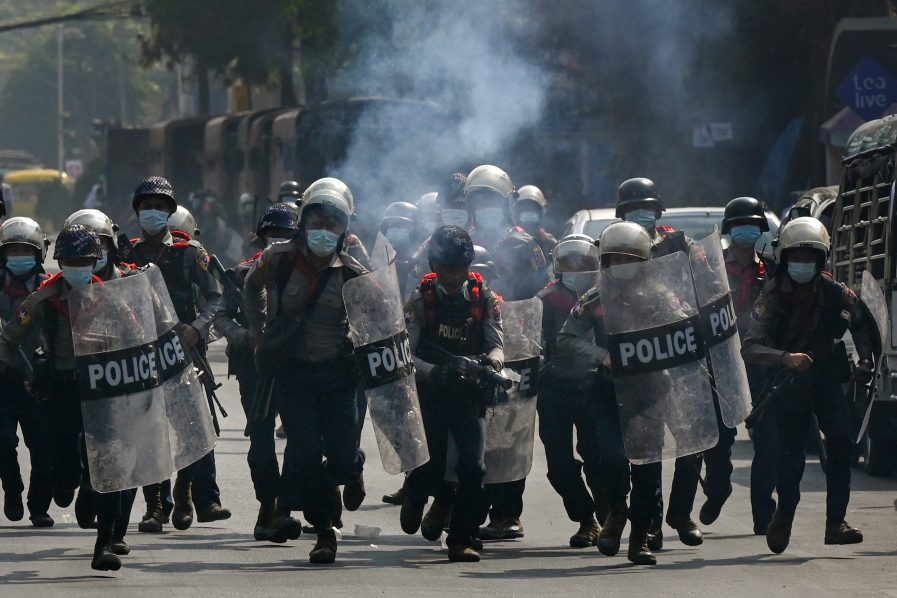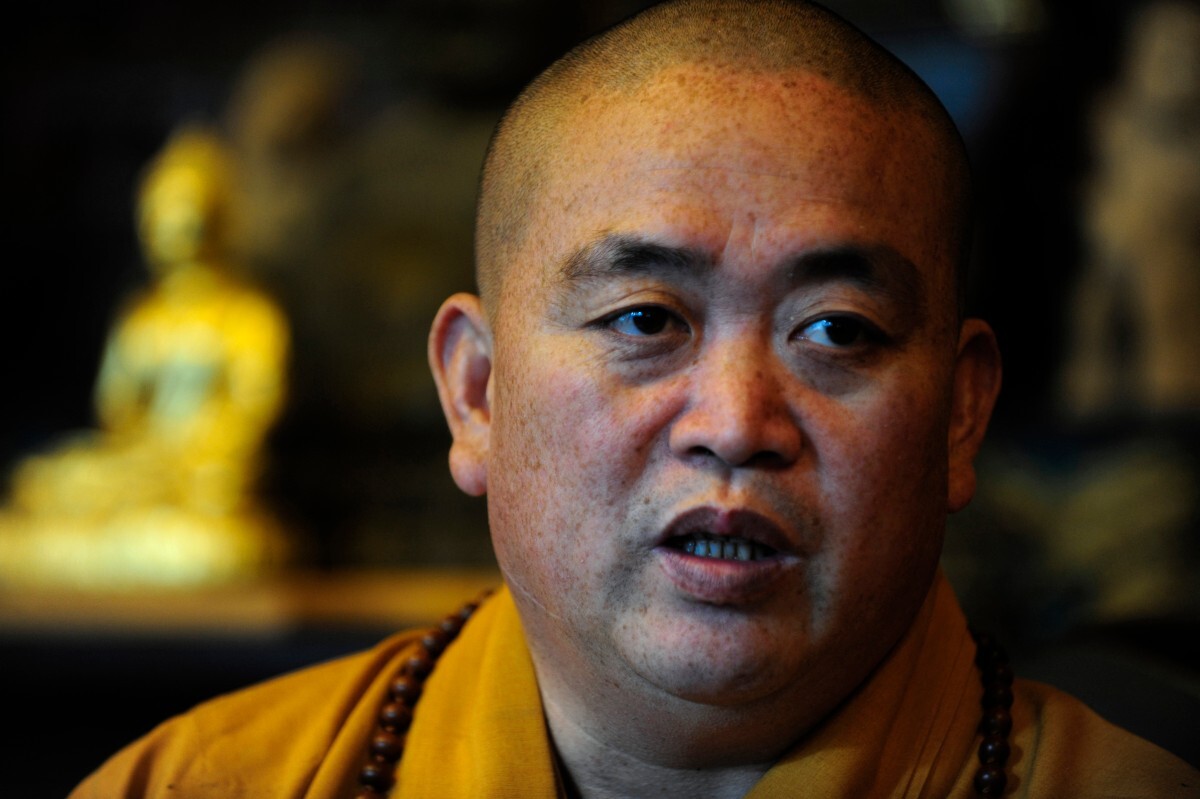
Since the February 1 toppling of civilian leader Aung San Suu Kyi, Myanmar has seen a burst of demonstrations demanding a return to democracy while outrage from abroad has mounted.
The nation’s UN envoy, Kyaw Moe Tun, made the extremely rare move as a representative when he broke with the rulers of his country during an address at the UN General Assembly.
“We need… the strongest possible action from the international community to immediately end the military coup, to stop oppressing the innocent people, to return the state power to the people, and to restore the democracy,” he said, his voice at times cracking with emotion.
He also flashed the three-fingered salute — a symbol of resistance for anti-coup demonstrators, and was met with applause in the chamber.
“It’s impossible to overstate the risks that #Myanmar UN ambassador Kyaw Moe Tun just took in the UN General Assembly,” tweeted Samantha Power, a former UN ambassador for the US.
US Ambassador to the UN Linda Thomas-Greenfield, making her first address in the chamber, vowed: “We will show the military that their actions have consequences.”
So far, at least five people have been killed since the overthrow — four of them from injuries sustained at anti-coup demonstrations that saw security forces open fire on protesters.
The military said one police officer had died while attempting to quell a protest.
– Protesters violently dispersed –
The UN General Assembly session comes after a tense day, which saw nearly 100 protesters arrested in three major cities across Myanmar.
Since daily anti-coup demonstrations started three weeks ago, authorities have steadily increased their use of force.
Riot police advanced on central junctions Hledan and Myaynigone — a key organising area for a movement that had bypassed restrictions by moving fluidly through the city.
Demonstrators who had been sitting on the ground and chanting slogans quickly dispersed into the smaller residential streets, with some assembling makeshift barricades using barbed wire and stacking tables to halt police.
Stun grenades were deployed in Hledan junction, according to witnesses and AFP reporters on the ground, sending protesters fleeing to hide in buildings nearby.
As officers searched apartments, residents protested by banging pots and pans — a common act of defiance against the military regime.
Authorities hauled away protesters, and the least one appeared injured from the melee, sitting in a police truck with a bloodied shirt.
“They beat young protesters with rods and cursed them while doing it,” said Thandar Cho, a street food vendor, adding that she saw police point their guns towards apartments.
A Japanese journalist, Yuki Kitazumi, was detained during the protracted crackdown, though he was later released.
He “was beaten on the head by baton but he was wearing a helmet”, his assistant Linn Nyan Htun said on Facebook.
More than 31 in Yangon were arrested, according to state-run media.
– Worries over Suu Kyi’s trial –
In Myanmar’s second-biggest city Mandalay, thousands of anti-coup demonstrators were also violently dispersed when police opened fire — though it was unclear if live rounds were used.
At least one man was seriously injured, said doctor Thet Htay, who also treated four others.
“The injury is severe with his left leg broken,” said the doctor, declining to name what type of weapon had caused the injury.
Myanmar’s capital Naypyidaw saw similar chaos, with protesters fleeing as stun grenades go off and riot police chasing them.
State-run television reported that 39 people were arrested during the Mandalay protest, and 25 in Naypyidaw.
The military has justified its power grab by alleging widespread electoral fraud in November’s elections, which her National League for Democracy had won in a landslide.
Nobel laureate Suu Kyi faces two charges for having unregistered walkie-talkies in her residence and for breaking coronavirus rules.
Her trial is scheduled for March 1, but her lawyer told AFP Friday that he still has not had contact with his client.
“It’s very important to get her signed power of attorney before the hearing starts on March 1 because we won’t be allowed to act as her defence counsels if we cannot file (it),” Khing Maung Zaw said.
“Then Daw Aung San Suu Kyi will be rid of her right of fair trial without a legal counsel.”






